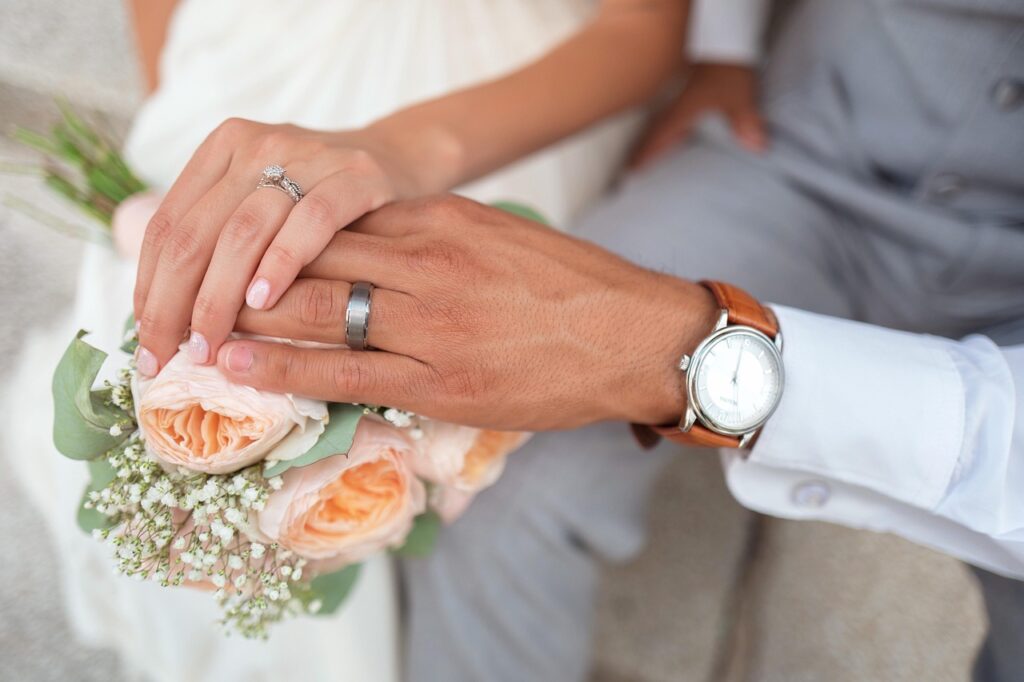Published on: 8th November 2024
Authored by: Bikram Kumar
BMT Law College
Case Title: Laxmibai Chandaragi v. The State of Karnataka
Criminal Writ Petition No. 359 of 2020
Court: Supreme Court of India
Date of Judgment: February 8, 2021
Petitioners: Laxmibai Chandaragi and another
Respondents: State of Karnataka and others
Bench: Hon’ble Mr. Justice Sanjay Kishan Kaul and Hon’ble Mr. Justice Hrishikesh Roy
Case Background
On October 14, 2020, Ms. Laxmibai Chandaragi (hereafter referred to as “the petitioner”) was reported missing from her residence by her father, Mr. Basappa Chandaragi, who filed a missing person’s report at Murgod Police Station, Belagavi District, Karnataka. The FIR, numbered 226/2020, initiated a police investigation.
It later emerged that the petitioner had traveled from Hubli to Bangalore and then to Delhi without notifying her family. On October 15, 2020, she informed her family of her marriage to the co-petitioner, Mr. Santosh, by sending them a copy of their marriage certificate via WhatsApp. Despite this, the Investigating Officer (IO) pressured her to return to her hometown, instructing her to appear at the Murgod Police Station.
As the pressure continued, the petitioners sought legal protection, approaching the Allahabad High Court on October 19, 2020. They sought the dismissal of the missing person’s FIR and protection for their marriage. Due to jurisdictional issues, with the petitioner from Karnataka residing with her husband in Ghaziabad, they ultimately filed a petition with the Supreme Court under Article 32 of the Indian Constitution, which safeguards citizens’ rights when they feel unjustly deprived.
Legal Issues Examined by the Court
The Supreme Court examined several key issues in this case, including:
- Is Parental Consent Necessary for Marriage?: Whether parental consent is mandatory when individuals of legal age choose to marry?
- Personal Liberty under Article 21: Does the freedom to marry a person of choice fall under Article 21, which guarantees personal liberty and privacy?
- Role of Law Enforcement in Matrimonial Cases: Are there established guidelines for police officers in handling sensitive matrimonial issues?
- Influence of Society on Marital Choices: How much influence, if any, does society have over an individual’s decision in marriage?
Arguments Presented by Both Sides
Appellants’ Arguments
The petitioners argued that despite providing the IO with a valid explanation for not appearing at the police station, the IO continued to pressure them. The petitioner alleged she had received threats from her family. Additionally, she accused the IO of coercing her to return to Karnataka by threatening a kidnapping charge against her husband, potentially impacting his employment.
The appellants emphasized that, as legally consenting adults, they had the right to marry without parental interference. They further highlighted that the husband’s family had accepted the marriage, in contrast to the petitioner’s parents.
Respondents’ Arguments
The counsel for the respondents contended that filing the FIR was part of the police’s duty following the petitioner’s reported disappearance. The respondents refuted any accusations of coercion or threats by the IO, claiming the IO merely needed a statement from the petitioner to close the case. They asserted that requesting the petitioner’s appearance at the station was a procedural necessity to conclude the investigation.
Supreme Court’s Judgment and Rationale
The Supreme Court’s two-judge bench, led by Justices Sanjay Kishan Kaul and Hrishikesh Roy, issued a ruling that both upheld the petitioners’ right to marry freely and addressed the conduct of the Investigating Officer.
Key Observations and Directives:
- Condemnation of Police Conduct: The Court criticized the IO’s insistence on the petitioner’s appearance at the police station, despite the marriage certificate and written confirmation that she was living with her husband. This, they argued, should have sufficed as a statement.
- Guidance for Law Enforcement: The Court ordered the police department to provide counseling for the IO and recommended a training program for police personnel on handling sensitive matrimonial cases more appropriately.
- Social Norms and Individual Rights: The Court observed that society’s expectations around marriage are evolving. The modern era, marked by increasing autonomy and individual freedom, has led to more people exercising their right to marry partners of their choice, often without parental consent.
- Right to Marry as a Fundamental Right: The Court underscored that under Article 21, the right to choose a life partner is an intrinsic aspect of personal liberty and dignity. The Court affirmed that individuals who meet the legal age requirement for marriage have the fundamental right to marry freely, regardless of parental or societal opposition.
- Case Outcome: The Court quashed FIR No. 226/2020, filed on October 15, 2020, and expressed hope that the petitioner’s parents would eventually accept their daughter’s marriage, facilitating renewed social interactions with both her and her husband.
Analysis
This case, Laxmibai Chandaragi v. The State of Karnataka, highlights the ongoing clash between modern perspectives on personal freedom and traditional social values regarding marriage. With more individuals embracing the right to marry a partner of their choice, India’s judiciary has continually recognized and expanded the scope of Article 21 to protect such freedoms.
In recent years, the Indian judiciary has consistently upheld that, once individuals reach the legal age of marriage, their choices supersede the need for parental or societal approval. Although social ideologies may vary, the right to marry based on personal choice is now regarded as an essential component of an individual’s dignity and liberty.
The Supreme Court, in this landmark ruling, has reinforced the importance of evolving alongside societal changes. It is only through embracing such changes that individuals, and indeed society as a whole, can thrive. The Court’s directive for police training on these matters further underlines the importance of protecting personal liberties while respecting individual choices in the realm of matrimony.
Conclusion: Right to Marry a Person of Choice under Article 21
This case reaffirms that the Right to Marry a Person of Choice falls under the fundamental rights guaranteed by Article 21 of the Indian Constitution. Once individuals have attained the legal age for marriage, neither parental consent nor community views are necessary for a valid marriage. The Court’s acknowledgment of this right as part of personal liberty and dignity ensures that individual autonomy in matrimonial matters is constitutionally protected.
References:
https://indiankanoon.org/doc/50950553/
https://www.livelaw.in/tags/laxmibai-chandaragi-b-v-state-of-karnataka
https://main.sci.gov.in/supremecourt/2020/25061/25061_2020_39_31_25989_Judgement_08-Feb-2021.pdf




